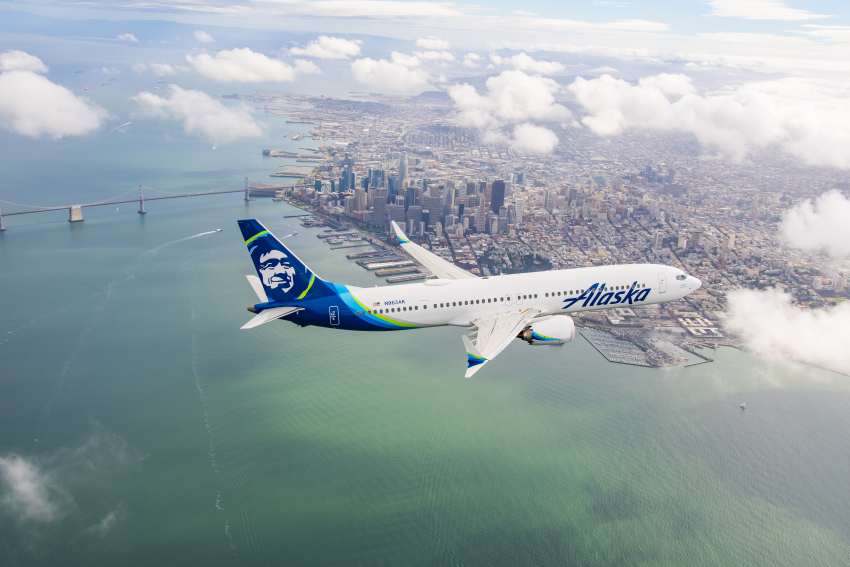Monday, July 21, 2025
By the evening of July 20, a confusing cloud covered U.S. airports as Alaska Airlines issued a system-wide ground stop, affecting all Alaska and Horizon Air flights. The cause? An unexplained I.T. outage that crippled one of the country’s busiest carriers. Grounded passengers, interrupted itineraries and vacations suddenly cut short stretched from Seattle to San Diego.
The shutdown began some time around 8:00 PM Pacific Time and the chaos lasted until about 11:00 PM, with lingering delays well into the early hours the following day, July 21. While the airline was back in action that night, the effects of the three-hour freeze reverberated far beyond the gates. Hundreds of flights were delayed or canceled, stranding thousands of travelers who had to find new accommodations, rebook stays or cancel trips outright.
Advertisement
Advertisement
Ripple Effect on U.S. Tourism Infrastructure
As Alaska Airlines serves a unique, diverse and inter-connected network, it maintains an important link for Pacific Northwest travelers to the Lower 48 states and beyond. The airline, which operates more than 300 aircraft, including the Embraer 175, and Boeing 737 family aircraft, serves over 115 destinations, according to federal aviation data. Its system is built on tourism “pipelines,” that originate in key cities like New York, Los Angeles, and Atlanta, and flow into destinations like Anchorage, Portland, and Pasco.
Airports soon became clogged with stranded travelers, rerouted jets and overloaded customer service desks after the airline announced its temporary suspension. In Seattle, Alaska’s home port, vacationers headed to weddings, conventions or scenic outdoors visits to Washington’s national parks found themselves caught flat-footed. Passengers destined for East Coast cities were waiting into the night for redeye flights in Hotel vouchers were handed out, but so were long hours in terminals in San Francisco and Los Angeles.
Airports: Overwhelmed by the Blow
Prolonged air traffic delays during the busy peak summer season can take a severe toll on community economies, according to the U.S. Department of Transportation. Whether it’s tour groups left waiting for delayed visits or hotels with missed check-ins, the tourism sector feels every ripple. In its database, the F.A.A. details how delays at big hubs — such as New York’s JFK, Atlanta’s Hartsfield-Jackson, and Detroit Metropolitan Airport — can disrupt the travels of thousands of people in a period of hours.
Earlier Wednesday morning, Portland International Airport reported longer-than-normal lines, as airline crews hustled to reroute both domestic and international travelers to their destinations on the first day following the outage. Groups of Canadian and Mexican travelers coming to the U.S. West Coast through Alaska Airlines’ network experienced stranded ground transfers, canceled rental reservations, and cut short vacations.
Small businesses and the local economy take the brunt of it
Businesses that cater to the tourism trade in the cities of destination were hard hit. In Las Vegas, a city where weekend air travel sustains casino stays, shows and conventions, last-second cancellations affected everything from hotel occupancy to revenue at tour operators. In San Diego, hotels along the coast reported a steep rise in late check-ins and in cancellations by guests flying in on Alaska flights.
Many of those stuck travelers chose to stay close to the city’s airports, contributing to a loss of peak evening business at restaurants, museums and recreational services throughout the West Coast. In Anchorage, home to a bustling airport that is a vital gateway for tourists on their way to Denali and the Kenai Peninsula, local lodge owners and seasonal workers expressed dismay at the disruption.
Rote Breakdowns Raise Doubts on System’s Strength
This is one incident of many. Alaska Airlines previously halted all its flights briefly in April 2024 in response to related weight- and-balance challenge for aircraft. The chronic issues are symptoms of how indefensible modern flight has become to digital sabotage.
Analysis of performance on aviation systems show that IT and software reliability are now as important (if not more) as aircraft maintenance and crew scheduling. Government bodies that oversee transportation have stressed the importance of strong cybersecurity and having redundant backup systems, particularly as aviation gets more and more digitized.
The Statistics & The Human Life Behind It
And behind the numbers are thousands of personal stories — honeymooners and students heading to college and military families heading home, retirees embarking on long-delayed trips. Travelers like Jessica Allen, whose plan to travel from Seattle to Atlanta for a family reunion was thwarted, were stuck overnight at the airport. “It was frustrating,” she added, “but the worst part was not knowing what was happening.”
Even airport workers felt some of the wrath from upset travelers. Customer service agents from Alaska Airlines in all ten impacted cities also worked extended hours, frequently without an expectation of when systems would be operational again. On the tarmac, flight crew members had to assure guests of everything while doing the same for themselves as they awaited orders.
Federal Response and Industry Oversight
The Federal Aviation Administration’s notice boards categorized the event as a “complete cessation of operations” for both Alaska Airlines and its regional franchisee, Horizon Air. The FAA provided no immediate explanation for the outage, although it did confirm the grounding through advisory bulletins sent to airports and airline companies all around the country.
The Department of Transportation has previously said that it is the responsibility of the airlines to avoid risking the public’s ability to travel through their digital practices. Alaska Airlines released a short statement referring to the IT failure, but no other details have surfaced. Congressional committees have in the past called for greater airline accountability and transparency after outages that disrupt commerce and public travel.
Looking Forward: Strengthening Tourism Resilience
Tourism boards and economic planners in large cities have already started writing post-event reviews. Cities like San Diego and Portland want stronger emergency protocols between airlines, hospitality companies and local tourism offices so the system can stay open even when shut down.
Alaska Airlines, meanwhile, is said to be doing a complete audit of its digital systems. Aviation analysts say the findings of this audit could help shape broader industry changes. The U.S. Department of Transportation’s aviation consumer protection division has received complaints and questions from passengers asking for compensation or clarification.
Final Thoughts: Flights May Return but trust has to be re- built
While flights were eventually brought back online and airports began to start up, the outage was a wake-up call to travelers and industry insiders alike. Alaska Airlines has always been a respected carrier for those concerned with efficiency and service, especially to the Pacific Northwest and Alaska. But even a couple of silent hours in a digital age has outsized implications.
For passengers like Jessica, who will have to wait a little longer for her family reunion in Atlanta, the experience is a reminder that the travel infrastructure is fragile. And for tourism businesses in Seattle, Anchorage and San Francisco — and beyond — resilience now means not simply weatherproofing against severe storms, but tech-proofing against invisible breakdowns.
Image Credit: Alaska Airlines
Advertisement
Tags: airport tourism delay, alaska, Alaska Airlines IT failure, Alaska Airlines outage impact, anchorage, Arizona, Atlanta, California, denali national park, Detroit, FAA ground stop Alaska, Georgia, Kenai Peninsula, Las Vegas, Los Angeles, Michigan, Nevada, New York, New York City, Oregon, Pasco, Phoenix, Portland, Reno, san diego, San Francisco, san jose, seattle, TACOMA, tourism disruption July 2025, U.S. flight delays news, Washington
Advertisement
Tags: airport tourism delay, alaska, Alaska Airlines IT failure, Alaska Airlines outage impact, anchorage, Arizona, Atlanta, California, denali national park, Detroit, FAA ground stop Alaska, Georgia, Kenai Peninsula, Las Vegas, Los Angeles, Michigan, Nevada, New York, New York City, Oregon, Pasco, Phoenix, Portland, Reno, san diego, San Francisco, san jose, seattle, TACOMA, tourism disruption July 2025, U.S. flight delays news, Washington
I want to receive travel news and trade event update from Travel And Tour World. I have read Travel And Tour World’sPrivacy Notice.
Thursday, July 24, 2025
Wednesday, July 23, 2025
Thursday, July 24, 2025
Thursday, July 24, 2025
Wednesday, July 23, 2025
Wednesday, July 23, 2025
Thursday, July 24, 2025
Thursday, July 24, 2025




